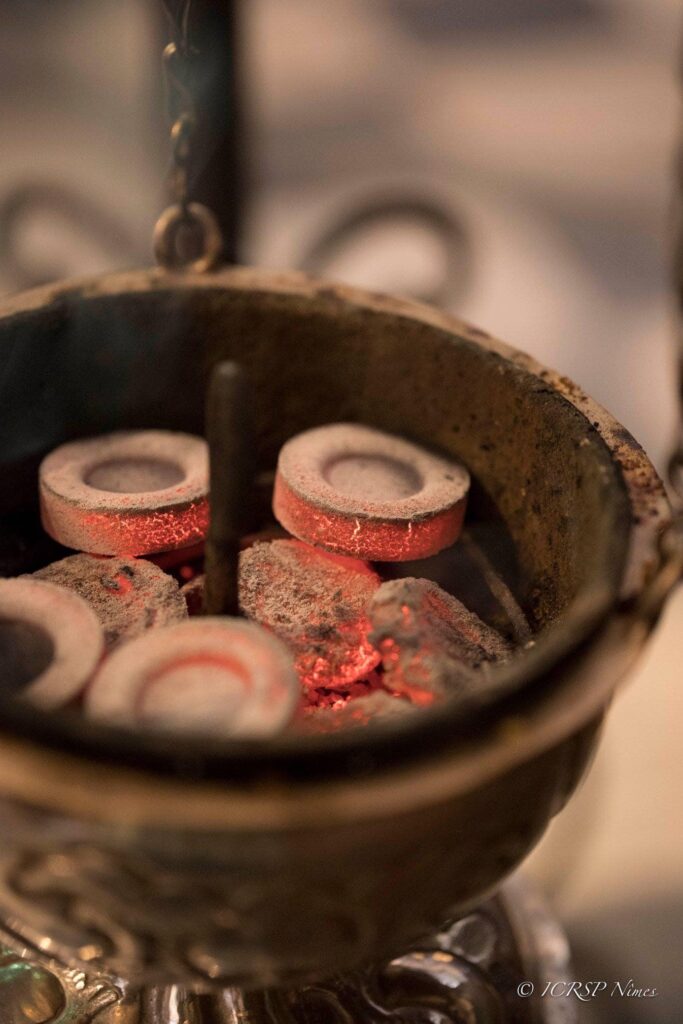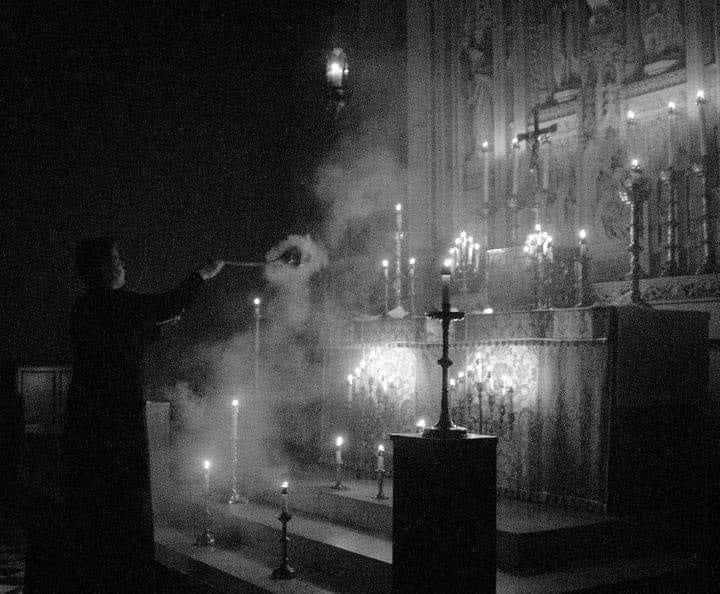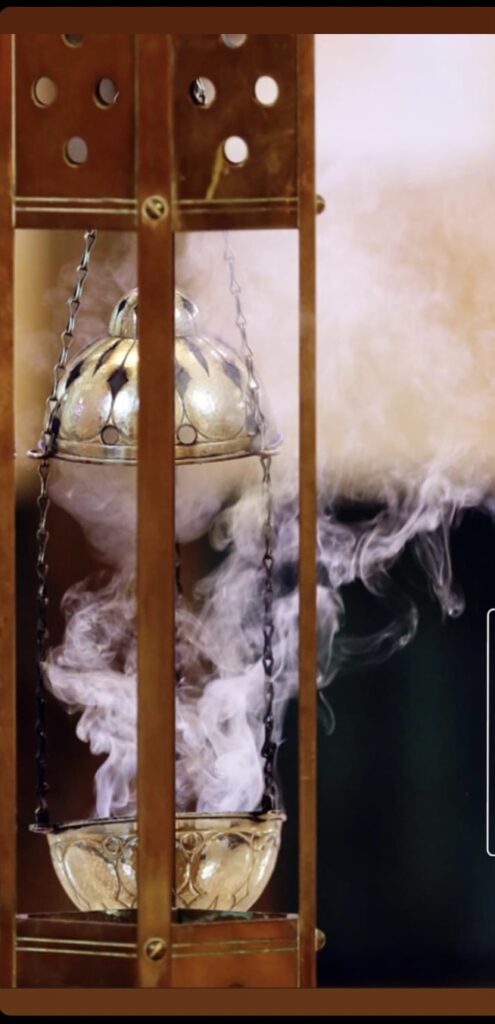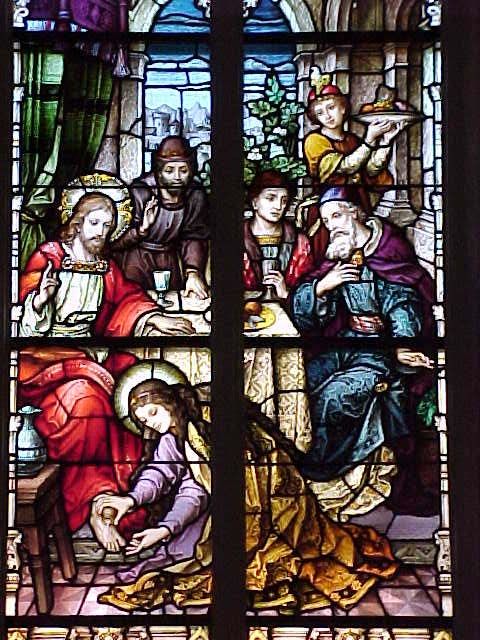But thanks be to God, who in Christ always celebrates his victory over us by a triumphal procession, and through us manifests the fragrance of the knowledge of him in every place. For we are the aroma of Christ to God among those who are being saved and among those who are perishing, to the latter a fragrance from death to death, to the former a fragrance from life to life. (2 Cor. 2:14-18)
St. Paul says that the Christians are the fragrance, the aroma of Christ in every place. For those who will be saved at the Last Day, the Christians are like the fragrance of incense; for those who will be damned at the Last Day, the Christians are like the stench of a decomposing corpse.
To unbelievers the preaching of the Cross is the smell of death. On hearing the Word of God they receive it as if it were a plague from which death knocks on the door. But to others it is the fragrance of life. To believers the Word of God is a messenger of eternal life.
… Some things are recognized by their smell, even though they are invisible. God, who is invisible, wishes to be understood through Christ. The preaching of Christ reaches our ears just as an aroma reaches our nostrils, bringing God and his only begotten Son right into the midst of his creation. A person who speaks the truth about Christ is … a good aroma from God, worthy of praise from the one who believes. But one who makes erroneous assertions about Christ has a bad smell to believers and unbelievers alike.
(Ambrosiaster, Commentary on St. Paul’s Epistles; written AD 366-384)
Incense, especially frankincense, is commonly found in the Old Testament. Anytime a prophet sees God or the heavenly court, there is a LOT of smoke (i.e. incense) billowing up around the Throne of God. There is a lot of incense filling the air of the Temple–twice a day several shovelfuls of incense are burnt on the altar that stands in front of the Holy of Holies. And on Yom Kippur, the Day of Atonement, the Holy of Holies is itself supposed to be so full of fragrant incense smoke that the High Priest should not be able to see his hand in front of his face.
Put an altar of incense in your innermost heart. Be a sweet aroma of Christ.
… so also the prophetic word is “a sweet fragrance” to those who believe, but to the doubting and unbelieving and those who say they belong to Pharoah, it becomes a detestable odor.
Origen, Homilies on Exodus)
In the New Testament, St. John describes in the Book of Revelation (the Apocalypse) how the angels stand swinging thuribles before the Throne of God and that the heavenly throne room is full of billowing clouds of fragrant smoke as the angels and saints offer the incense and prayers to God. Fragrant incense is everywhere God is, according to the Old and New Testaments.
Then another angel, who had a golden censer, came and stood at the altar. He was given much incense to offer, along with the prayers of all the saints, on the golden altar before the throne. And the smoke of the incense, together with the prayers of the saints, rose up before God from the hand of the angel. Then the angel took the censer, filled it with fire from the altar ….
Book of Revelation 8:3-5
Christians are both the fragrance of Christ in the world and the fragrance of prayer offered to Christ. The Holy Spirit descends as the smoke/prayer rises. Who would not want to experience that scriptural scent as they bow down to God?






